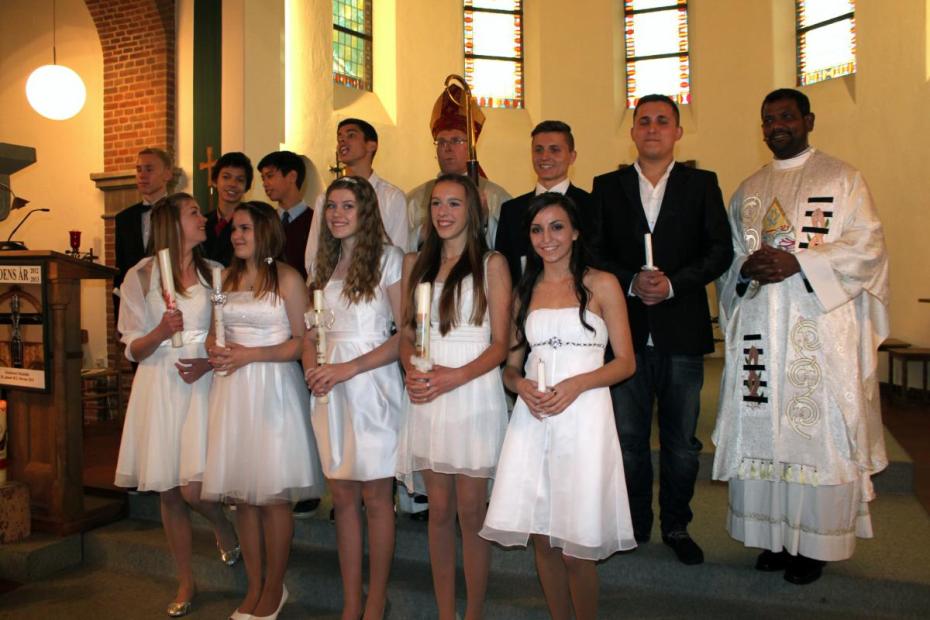The Danish sense of interiority and privacy in matters of religion carries over into childrearing. Danish parents, both Catholic and Lutheran, think that while it is important to expose their children to Christian faith, this too should be done quietly and unobtrusively, and that the children themselves must decide how they will direct their lives religiously. Committed Catholics interviewed for this project suggested that given the importance of free choice and election in the life of faith, it would be a kind of moral violation to push one’s children in any direction religiously.
One of the greatest paradoxes in a country as irreligious as Denmark is the fact that confirmation remains a very important moment in the lives of Danish youth. In a country where fewer than half of weddings are performed in churches, 71 percent of all children (44 percent in Copenhagen) are confirmed in the state Lutheran church.1
As Catholic statistics show, Catholics are also much more likely to be confirmed than to be married in the church. The numbers, according to Danes, do not mean that Danes lose their faith between the age of confirmation and the age of matrimony. Rather, they point to the cultural importance of confirmation, and the party that goes along with it, as the marker of one’s transition to adulthood.2 Confirmation endures as such an important marker of the transition to adulthood that many secular Danish youth celebrate “nonfirmation” ceremonies instead, while others want a ceremony in a church that is “traditional,” but not loaded with references to God.
Confirmation and “nonfirmation” are followed by a large dinner for family and friends. Youth receive significant gifts at the parties. The Catholic tradition differs by trying to make the ceremony in the church the main emphasis, requiring five hours’ biweekly preparation for many months in advance.
Catholic youth in Denmark often participate in a program called "CoolChurch," which provides diocesan-wide events and summer camp.
- 1The Statistical Yearbook 2013: Culture and National Church. (Copenhagen: Denmark Statistics, 2013), http://www.dst.dk/pukora/epub/upload/17957/04cul.pdf.
- 2The emphasis on confirmation is said to derive from the era of tenant farming through the 19th century, when a confirmation certificate was necessary for a young adult to gain employment.
